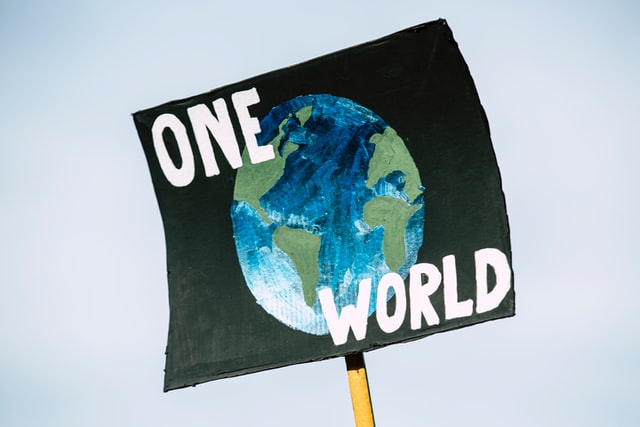
Can we stop climate change in a capitalist system?
Article by Lola-Fleur Whittaker
Photo by Markus Spiske on Unsplash
Over the last 100 years, the average temperature on earth has increased by 1°C and the temperature is only rising faster. The main issue with global warming is that we cannot see the difference in our daily life. Therefore, no drastic measures are put in place. Global warming is the increasing land, air, and sea temperatures around the world caused by the accumulation of ‘greenhouse gases’ in the atmosphere such as carbon dioxide (Co2), methane, etc. Global warming has already occurred on earth in the past, however, it is the first time that is it because of human activity. It is also the first time that it is happening so fast.
The modern world is a capitalist world economy driven by economic growth and profit. Indeed, most of the countries’ trades and industries (especially in the western-northern, more developed countries) are controlled by private owners for profit, rather than by a state. This means that no matter the cost, one will privilege economic growth over any social, political or in this case environmental aspects. Indeed, as I said previously, the current global warming is connected to human activity associated with greenhouse gas emissions such as industry, transport and aviation, animal agriculture (methane), etc. “Human beings and the natural world are on a collision course. Human activities inflict harsh and often irreversible damage on the environment and on critical resources. If not checked many of our current practices put at serious risk the future that we wish for human society and the plant and animal kingdoms and may so alter the living world that it will be unable to sustain life in the way that we know. Fundamental changes are urgent if we are to avoid the collision our present course will bring about.” (World Scientists’ Warning to Humanity)
The question thus remains: can we have both a stable environment and live in a world where economic growth is privileged?
In 1972, Donella Meadows, Dennis Meadows and Jorgen Randers released an influential book called The limits to growth. It was updated in 1992 and 2004. According to them, unlimited economic growth is not possible on the earth as a limit will be reached. Indeed, the main resources we are currently using aren’t viable for example coal, oil and gas. As an idea, in coal and gas-fired power stations, we are using up to 100 million barrels of oil a day! “Limits to Growth pleaded for profound, proactive societal innovation through a technological, cultural and institutional change in order to avoid an increase in the ecological footprint of humanity beyond the carrying capacity of planet Earth” (2004). They argued an end to economic and population growth was inevitable but could occur in different ways such as through a disorderly collapse and uncontrolled decline in population and human welfare, or through a smoother transition & planned adaptation, retaining relatively high levels of welfare.
Another argument is the treadmill of production. This is an influential theory proposed by Alan Schnaiberg in The Environment: From Surplus to Scarcity (1980). It is one of the earliest systematic social science analyses of environmental degradation. He argued that the main driver of environmental degradation was a “relentless scaling up and intensification of economic production”, bound up with investment in changing technologies, and resulting in increasing resource exploitation, consumption, and pollution. He also argues that production decisions are the most important. For instance, it is the corporation Apple that will decide to create a new module and not the consumer? The consumer can only agree or disagree with this new module.
‘Individuals, communities, states and corporations consume only the outputs of a given production technology… While consumers can accept or reject these products, they have no influence over the allocation of capital to productive technologies.’ (Gould, Pellow & Schnaiberg, 2008: 20). Indeed, the production-ecosystem relationship is direct, whereas the consumption-ecosystem relationship is indirect and subsidiary. ‘Thus, it is within the production process where the initial interaction of social systems with ecosystems occurs’ (2008: 20).
However, there are also other more optimist opinions such as ecological modernisation. They believe that capitalist economic growth is not fundamentally incompatible with environmental protection, it is a matter of promoting the right kind of growth. Indeed, we can decide to promote more sustainable items and develop new technologies that can help us fight global warming. However, I believe this is a utopic point of view as it will be difficult to get corporations, which have the main objective of profit growth, to switch to a more sustainable and thus more expensive system.

0 Comments